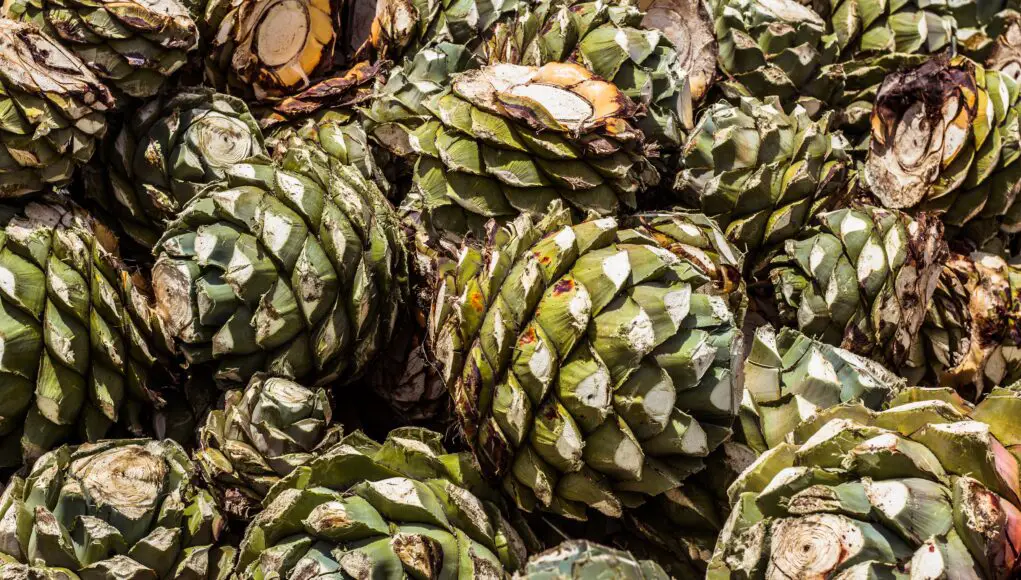There’s a captivating spirit that hails from the heartland of Mexico, a spirit steeped in tradition and artisanal craftsmanship—a spirit known as mezcal. If you’re a fan of tequila or intrigued by the world of agave-based libations, mezcal is sure to pique your interest and take your taste buds on a thrilling journey. In this blog post, we’ll delve into the world of mezcal, unravel its unique characteristics, explore the Mexican legal aspects that differentiate mezcal from tequila, and even venture into the intriguing realm of mezcal margaritas. So, grab a glass and get ready to discover the magic of mezcal!
The Origin of Mezcal: A Tale of Timeless Tradition
To understand mezcal, we must journey back in time to the agave fields of Mexico. Mezcal, much like tequila, is derived from the agave plant, but its origins can be traced back even further. The name “mezcal” comes from the Nahuatl word “mexcalli,” meaning “oven-cooked agave.” The process of making mezcal has remained largely unchanged for centuries, embracing a deep-rooted connection to Mexican culture and heritage.
Unlike tequila, which is made from the Blue Weber agave, mezcal can be crafted from various agave species, including Espadín, Tobalá, and Tepeztate, among others. Each agave variety contributes unique flavors and aromas, creating a diverse array of mezcal expressions to explore.
Mezcal: A Work of Artisanal Mastery
What truly sets mezcal apart is the artisanal production process that embraces age-old techniques. Traditional mezcal is often produced in small batches by skilled mezcaleros, artisans who have honed their craft over generations. This hands-on approach imbues mezcal with a distinct character and a sense of authenticity that aficionados cherish.
The process begins with harvesting mature agave plants, which can take anywhere from seven to thirty-five years to reach maturity, depending on the agave species. The hearts of the agave, called piñas, are then cooked in earthen pits lined with volcanic rocks, adding a unique smoky and earthy flavor to the spirit.
After roasting, the piñas are crushed by a stone wheel pulled by horse or mule, a traditional method that preserves the essence of the agave. The extracted juice is then fermented in wooden vats, allowing natural yeasts to work their magic and contribute to the spirit’s complexity.
Distillation is typically carried out in copper or clay stills, further enhancing the mezcal’s character. The result is a spirit that encapsulates the essence of Mexico—a spirit that reflects the land, the people, and the culture in every drop.
Mezcal vs. Tequila: A Matter of Terroir and Tradition
The distinction between mezcal and tequila goes beyond the agave species used; it’s rooted in the concept of terroir and regional identity. While both spirits come from Mexico and the agave plant, they hail from different regions and embrace distinct production methods.
The Mexican legal framework classifies mezcal as any agave-based spirit produced in specific states, primarily Oaxaca, Guerrero, Durango, San Luis Potosi, and Zacatecas. On the other hand, tequila is exclusively produced in designated regions within the state of Jalisco and limited areas of four other states.
Mezcal’s production process, with its focus on artisanal techniques and a wide range of agave varieties, highlights the diversity of Mexico’s terroir. Each mezcal expression tells a story of the agave’s journey through the rugged landscape and embodies the culture of the local communities that nurture its growth.
The Mezcal Margarita: A Spirited Twist on a Classic
Now, you may wonder, can a mezcal margarita truly be considered a margarita? Technically, the answer is no. The classic margarita, as we know it, is made with tequila, typically the Blanco or Silver variety, and often paired with orange liqueur and fresh lime juice.
However, embracing the world of mezcal doesn’t mean we need to abandon our beloved margarita entirely. Rather, we can embark on a mezcal margarita adventure and savor a spirited twist on this iconic cocktail.
To create a mezcal margarita, simply swap out the tequila for mezcal while keeping the rest of the ingredients intact. The smoky and earthy notes of mezcal lend a new dimension to the cocktail, enticing those who appreciate the spirit’s complexity.
Remember, cocktail culture thrives on experimentation and personal preferences. If you have a fondness for mezcal, there’s no harm in giving a mezcal margarita a shot! Embrace the journey of flavor exploration and discover the wonders of mezcal’s contribution to this timeless favorite.
Embracing the Magic of Mezcal
As you venture into the enchanting world of mezcal, remember that it’s not just a spirit—it’s an embodiment of Mexican culture, tradition, and passion. From the hand-harvested agave to the artisanal production process, mezcal offers an authentic and captivating experience that honors the spirit’s rich heritage.
So, the next time you raise a glass of mezcal, take a moment to savor the spirit’s complexity, the stories it carries, and the land it represents. Mezcal invites us to embrace the beauty of diversity and celebrate the magic that unfolds in every sip.
¡Salud!













